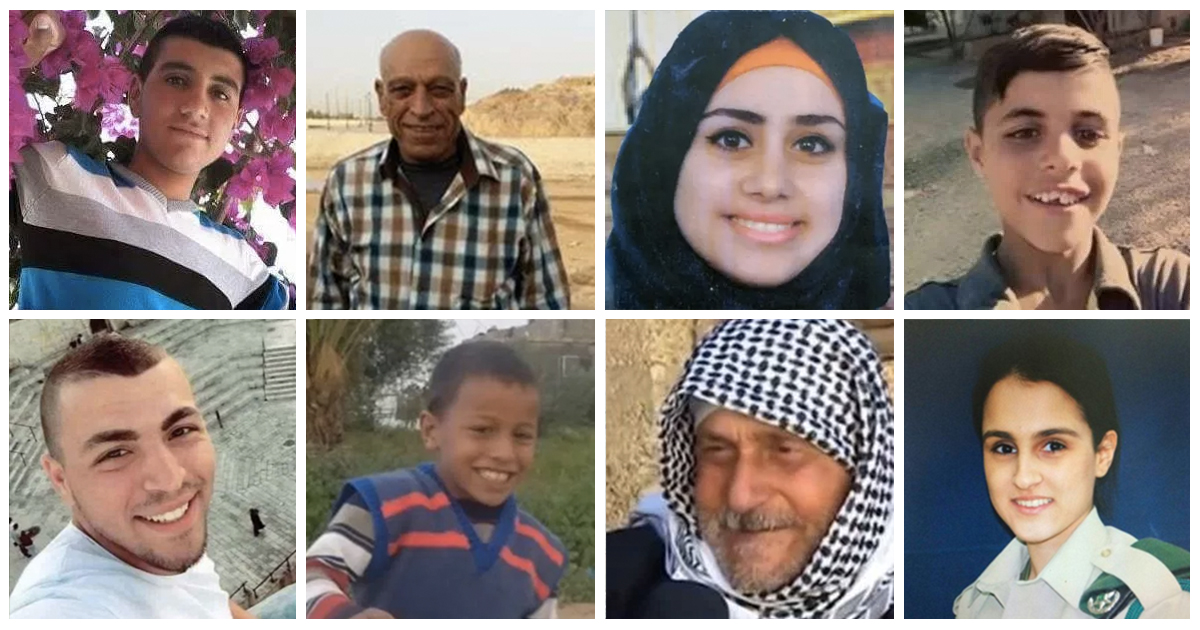Israeli Settlements
on Palestinian Land
Palestinians do not have any
settlements on Israeli land.
Last updated: 1/11/2025
Source: According to Peace
Now, there are 147 official Israeli settlements and 224 informal outposts on Palestinian land (a total of 371 settlements). PN's interactive settlement map shows the name, location, and population for each settlement and outpost on Palestinian territory, all of which are considered illegal under international law.

“Land Grab:
Israel’s Settlement Policy in the West
Bank”
Published in May 2002.
B’Tselem, the Israeli
Information Center for Human Rights in the Occupied Territories,
endeavors to document and educate the Israeli public and policymakers
about human rights violations in the Occupied Territories, combat the
phenomenon of denial prevalent among the Israeli public, and help create
a human rights culture in Israel.
Historical Background
Since 1967, each Israeli government has invested
significant resources in establishing and expanding settlements in the
Occupied Territories. As a result of this policy, approximately 500,000
Israeli citizens now live on the settlements on the West Bank, including
those established in East Jerusalem.
The [peace] process between Israel and the Palestinians did not
impede settlement activities, which continued under the Labor government
of Yitzhak Rabin (1992-1996) and all subsequent governments. These
governments built thousands of new housing units, claiming that this was
necessary to meet the "natural growth�? of the existing population. As a
result, between 1993 and 2000 the number of settlers on the West Bank
(excluding East Jerusalem) increased by almost 100 percent.
International Law
International humanitarian law prohibits [an] occupying power [from
transferring] citizens from its own territory to the occupied territory
(Fourth Geneva Convention, article 49). The Hague Regulations prohibit
the occupying power [from undertaking] permanent changes in the occupied
area, unless these are due to military needs in the narrow sense of the
term, or unless they are undertaken for the benefit of the local
population.
The establishment of the settlements leads to the violation of the
rights of the Palestinians as enshrined in international human rights
law. Among other violations, the settlements infringe on the rights to
self-determination, equality, property, an adequate standard of living,
and freedom of movement.
Taking Control of the Land
Israel has used a complex legal and bureaucratic mechanism to take
control of more than fifty percent of the land in the West Bank. This
land has been used mainly to establish settlements and create reserves
of land for the future expansion of the settlements.
Israel uses the seized lands to benefit the settlements, while
prohibiting the Palestinian public from using them in any way. This use
is forbidden and illegal in itself. As the occupier in the Occupied
Territories, Israel is not permitted to ignore the needs of an entire
population and to use land intended for public needs solely to benefit
the settlers.
The Policy of Annexation and Local Government
The Israeli administration has applied most aspects of Israeli law to
the settlers and the settlements, thus effectively annexing them to the
State of Israel…This annexation has resulted in a regime of legalized
separation and discrimination. This regime is based on the existence of
two separate legal systems in the same territory, with the rights of
individuals being determined by their nationality.
The areas of jurisdiction of the Jewish local authorities, most of
which extend far beyond the built-up area, are defined as "closed
military zones�? in the military orders. Palestinians are forbidden to
enter these areas without authorization from the Israeli military
commander. Israeli citizens, Jews from throughout the world and tourists
are all permitted to enter these areas without the need for special
permits.
Encouragement of Migration to Settlements
The Israeli governments have implemented a consistent and systematic
policy intended to encourage Jewish citizens to migrate to the West
Bank…settlers and other Israeli citizens working or investing in the
settlements are entitled to significant financial benefits.
The Planning System
The planning system on the West Bank, implemented by the Civil
Administration, is one of the most powerful mechanisms of the Israeli
occupation. As with the other bureaucratic systems, the planning system
operates on two distinct tracks: one for Jews and the other for
Palestinians.
This system is responsible for transforming the map of the West Bank
because it is the planning system that approves the outline plans for
the settlements and issues building permits for the establishment and
expansion of settlements and for the construction of by-pass roads.
Israel changed the composition of the planning institutions on the West
Bank and transferred numerous planning powers to the Jewish local
authorities, while expropriating these powers from Palestinian planning
institutions.
While facilitating Jewish settlement, the planning system works
vigorously to restrict the development of Palestinian communities. The
main tool used to this end is to reject requests for building permits
filed by Palestinians. In most cases, the requests are rejected on the
grounds that the regional outline plans – approved in the 1940s
during the British Mandate – prohibit construction in the relevant
area of land. These plans do not reflect the development needs of the
Palestinian population, and the planning system deliberately refrains
from preparing revised plans. Houses built by Palestinians without
building permits are demolished by the Civil Administration, even in
cases when the construction took place on private land.
Conclusions
Israel has created in the Occupied Territories a regime of separation
based on discrimination, applying two separate systems of law in the
same area and basing the rights of individuals on their nationality.
This regime is the only one of its kind in the world, and is reminiscent
of distasteful regimes from the past, such as the Apartheid regime in
South Africa.
Under this regime, Israel has stolen hundreds of thousands of dunam
of land from the Palestinians. Israel has used this land to establish
dozens of settlements in the West Bank and to populate them with
hundreds of thousands of Israeli citizens. Israel prohibits the
Palestinians as a group from entering and using these lands, and uses
the settlements to justify numerous violations of the
Palestinians’ human rights, such as the right to housing, to earn
a livelihood, and the right to freedom of movement. The drastic change
that Israel has made in the map of the West Bank prevents any real
possibility for the establishment of an independent, viable Palestinian
state as part of the Palestinians’ right to
self-determination.
The settlers, on the contrary, benefit from all the rights available
to Israeli citizens living within the Green Line [Israel proper], and in
some cases are even granted additional rights. The great effort that
Israel has invested in the settlement enterprise – in financial,
legal and bureaucratic terms – has turned the settlements into
civilian enclaves in an area under military rule, with the settlers
being given priority status. To perpetuate this situation, which is a
priori illegal, Israel has continuously breached the rights of the
Palestinians.
Particularly evident is Israel’s manipulative use of legal
tools in order to give the settlement enterprise an impression of
legality. In so doing, Israel trampled on numerous restrictions and
prohibitions established in the international conventions to which it is
party, and which were intended to limit infringement of human rights and
to protect populations under occupation.
|



